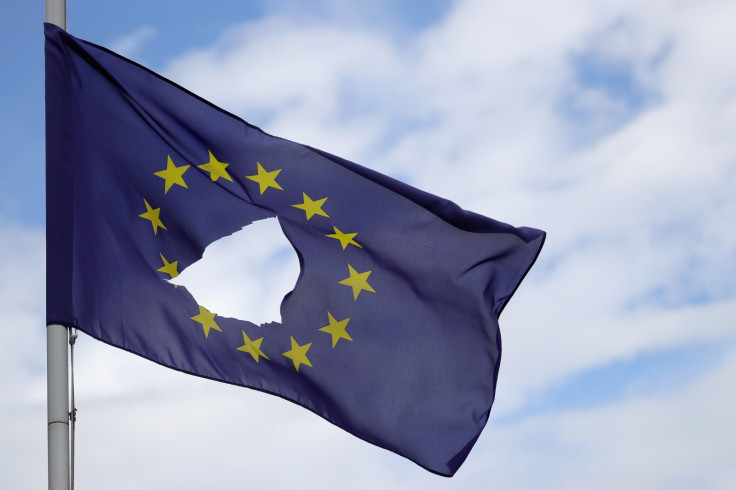Government knows the consequences of Brexit will be disastrous - but experts will be ignored again
This leak ought to be taken seriously by everyone. Otherwise we can expect to see a further rise in know-nothing populism.

The leak of a Whitehall analysis to Buzzfeed simply reiterates what many economists have been saying about Brexit for several years: it is likely to damage the British economy significantly, at least over the short term.
Even a soft Brexit - which would entail the UK remaining in the customs union and single market - would reduce GDP by two per cent over the next 15 years from what it would have been if we'd never left the European Union at all. A hard Brexit on the other hand would potentially knock as much as 5 per cent off of GDP over 15 years.
It's a sobering broadside delivered – even more alarmingly – from within the government itself. The report can hardly be dismissed out of hand as a Remainer conspiracy when it emanates from the government's own Department for Exiting the European Union.
Yet I doubt it will be the game-changer it is being touted as by many prominent Remainers. Indeed, the problem with these sorts of reports is that few people appear to believe them anymore, or at the very least they treat them with a great deal of scepticism.
Some of this is down to a more general loss of deference in our society. The mania for proving liberal highbrows wrong isn't new but is particularly strong in an age of social media where everyone is a performative critic. Our age is particularly propitious to the solipsism of hawking a contrary opinion around and watching it spread on social media like a virulent plague. Many people – journalists and ordinary voters - would do well to take on board the historian G.M. Young's mantra that a man has "no more right to an opinion for which he cannot account than to a pint of beer for which he cannot afford to pay".
But of greater significance is probably the fact that experts, highbrows, commentators – whatever you wish to call them – have been wrong about a great deal in recent years. Not only have some of the predictions around Brexit been misdirected – manufacturing is at a 30-year high and a tighter labour market due to a drop in immigration appears to be having a slightly positive impact on wages - but so have predictions around everything from Saddam Hussein's supposed possession of WMD to the quaint notion that Gordon Brown had abolished boom and bust.
We might add to this list the confident predictions that immigration to Britain from the former Eastern bloc countries would be limited to the tens of thousands. Not that I feel I ought to be exempt from this sort of retrospective accounting. Like many writers I was perfectly wrong about the result of the 2017 election insofar as I predicted a catastrophic result for the Labour Party under Jeremy Corbyn.

In other words, if the recent decade and a half in politics has any common theme it ought to be the loss of trust in supposedly highbrow liberal opinion. This doesn't mean that one should dismiss expertise in a cavalier fashion ala Michael Gove – though notably Gove notably listens to green experts in his brief as environment secretary - but it probably does mean we shouldn't be surprised when the latest report foretelling a doom-laden Brexit passes most Leave voters by. In a week or so, one should expect to read hand-wringing opinion columns lamenting the fact that the percentage of people in favour or Brexit remains stubbornly close to where it stood 18 months ago.
More seriously, the bleak scenarios set forth in the leaked papers, should they come to fruition, will impact most severely on those working class communities that voted for Brexit. A certain type of liberal – the sort who long ago discarded the working class in favour of more fashionable oppressed groups - will secretly take heart from this, viewing it with schadenfreude as a form of collective punishment dished out toward people who voted against the advice of the better educated.
Yet the consequences of Brexit set forth in this leak ought to be taken seriously by everyone. Otherwise we can expect to see a further rise in know-nothing populism in the coming years, to the detriment of unpopular groups like refugees and economic migrants.
But once the furore around today's headlines has subsided we might want to better consider why expertise is so loathed and distrusted in Britain in the first place. Perhaps it has something to do with the attempt by liberals to portray expertise as disinterested and non-political, when the experts foisted upon us very often represent a discernible set of economic and political interests and assumptions. It is worth remembering that economics is not an exact science (though it pretends to be), and that economists and political commentators are as susceptible as anyone else to bias and indulging what Edward Said called the "fawning elasticity with regard to one's own side".
This is of course hardly true with respect to this particular report which is, as I have already mentioned, a product of a pro-Brexit department within a pro-Brexit government. It is thus hardly a derivation of the liberal hivemind. But when so many of the purportedly cast iron 'laws' handed down to us by orthodox economists and establishment politicians have over the years turned out to be about as useful as a shredded betting slip, it seems inevitable that when a report comes out that really does matter it will fail to hit home.
The economic consequences of Brexit look potentially disastrous, but don't be surprised if the 'experts' are ignored yet again. Paradoxically, we are where we are precisely because we didn't ignore these wiseacres with greater regularity in the past.
James Bloodworth is former editor of Left Foot Forward, one of the UK's top political blogs, and the author of The Myth of Meritocracy.






















